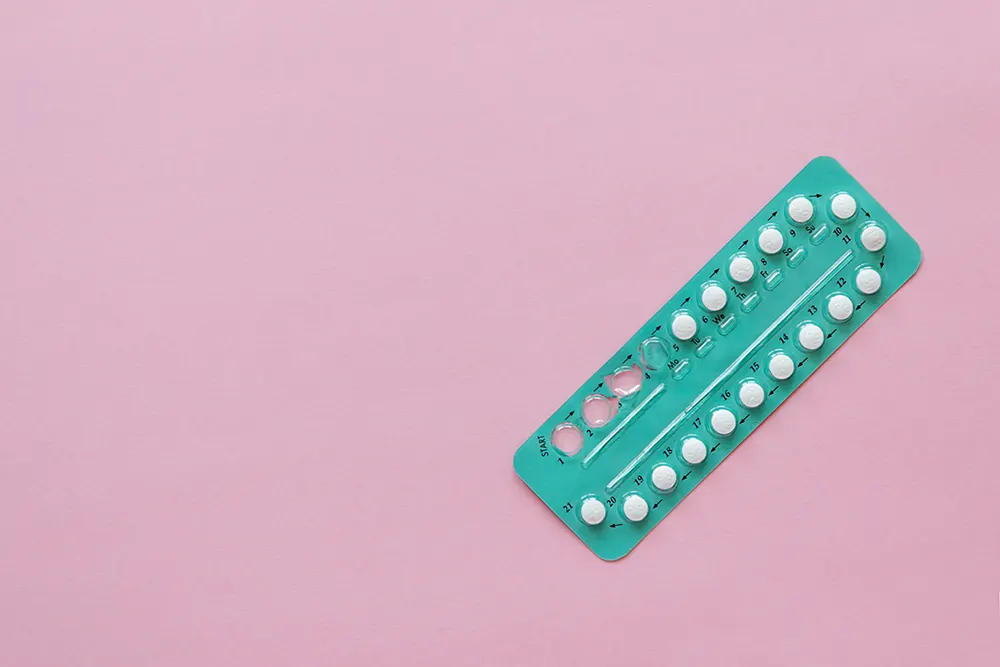Hysterectomy and Hormones
Hormone Replacement Therapy
Hormone therapy is often recommended after a hysterectomy to help manage menopausal symptoms and may have other health benefits. A hysterectomy is a surgical procedure that involves the removal of a woman’s uterus. If a woman’s ovaries are also removed during a hysterectomy, she will experience menopause immediately. If her ovaries are not removed, she may still experience menopause earlier than expected due to the loss of estrogen production by the uterus. Menopause is the time in a woman’s life when her menstrual periods stop, and it is marked by a decline in the production of hormones such as estrogen and progesterone. Menopause can cause symptoms such as hot flashes, night sweats and vaginal dryness.
In hormone treatment, sometimes referred to as hormone replacement therapy (HRT), drugs are taken to replace the hormones that the body is no longer producing. Menopausal symptoms can be managed with hormone therapy , which also might have other health advantages. It’s crucial to remember, though, that hormone therapy may not be safe for all women and carries certain potential hazards. To choose the optimal course of treatment, it is crucial to explore the possible dangers and advantages of hormone therapy with a healthcare professional.
The impact of a hysterectomy on hormone production
A hysterectomy can have a substantial impact on hormone production, including the uterus’s inability to make estrogen. When the uterus is gone, the body is no longer able to produce estrogen in the same way because it is a vital organ for hormone production. This could lead to menopausal symptoms like hot flashes, nocturnal sweats, and dry vagina.

Menopausal hot flashes are a typical symptom that can make you feel warm and perspire. An indication of menopause could be excessive nighttime or sleeping perspiration. Vaginal dryness is another normal menopause symptom that may be painful while engaging in sexual activity.
Other impacts on the body may result from the decrease in estrogen production. A decrease in estrogen production increases the risk of osteoporosis, a disorder in which the bones weaken and become brittle. Estrogen plays a role in bone health. A decrease in estrogen production may raise the risk of cardiovascular disease since estrogen may protect the cardiovascular system.

Overall, a hysterectomy’s effect on hormone production can cause menopausal symptoms and have other potential health repercussions. To fully grasp the potential consequences on your unique situation, it is crucial to examine the potential influence of a hysterectomy on hormone production with a healthcare professional.
Types of hormone therapy
Women can select from a range of hormone therapy choices following a hysterectomy. It is essential to review the various forms of hormone therapy with a healthcare provider in order to choose the best course of treatment for you.
Oral contraceptives, also known as birth control pills, contain hormones including progesterone and estrogen. Along with helping to control menopausal symptoms, they may also provide other health benefits include reducing the risk of some malignancies and addressing acne. However, oral contraceptives might not be risk-free for all women and might present certain risks.

Taking estrogen by itself as part of estrogen therapy can help manage menopausal symptoms and have additional health advantages. However, estrogen therapy might not be appropriate for many women and could be dangerous.
To assist manage menopausal symptoms, combined hormone treatment entails taking estrogen and progesterone together. Additional advantages of combined hormone therapy may include a decreased risk of uterine cancer. Combination hormone therapy, however, might not be appropriate for all women and could be dangerous.
To choose the best course of treatment for you it is crucial to examine the benefits and drawbacks of each type of hormone therapy with a healthcare professional. More details on the potential advantages and hazards of each type of hormone therapy are available from your healthcare practitioner , who can also assist you in making the choice that is most appropriate for your particular situation.
The role of hormone therapy in managing menopausal symptoms
For treating menopausal symptoms like hot flashes, night sweats and vaginal dryness, hormone therapy may be an effective alternative. Menopausal hot flashes, which can make you feel warm and make you perspire , are typical symptoms. Excessive sweating at night or while you’re sleeping might potentially be a sign of menopause. Another typical menopause symptom that can be uncomfortable during sexual activity is vaginal dryness.
Taking drugs to replace the hormones that the body is no longer producing is known as hormone therapy. Menopausal symptoms can be managed with hormone therapy, which also might have other health advantages. It’s crucial to remember, though, that hormone therapy may not be safe for all women and carries certain potential hazards. To choose the optimal course of treatment, it is crucial to explore the possible dangers and advantages of hormone therapy with a healthcare professional.
You can learn more about the potential advantages and hazards of hormone therapy from your healthcare practitioner, who can also advise you on the most appropriate course of action given your particular set of circumstances. They can also advise you of additional menopausal symptom management alternatives, such as lifestyle modifications and non-hormonal drugs. To choose the best course of action for treating your menopausal symptoms , it is crucial to review all of your available treatment options with your healthcare professional.
Other potential health benefits of hormone therapy
Hormone therapy may be able to aid with menopausal symptoms as well as other potential health advantages. Osteoporosis risk reduction is one possible advantage of hormone therapy. Osteoporosis is a disease that causes the bones to deteriorate and become brittle. It is more prevalent in women after menopause. Estrogen contributes to bone health and estrogen-containing hormone therapy can help preserve bone density and lower the risk of osteoporosis.
Reduced risk of cardiovascular disease is a potential side effect of hormone therapy. Heart attacks, strokes , and other illnesses that affect the heart and blood arteries are all referred to as having cardiovascular disease. Hormone therapy that includes estrogen may lower the risk of cardiovascular disease since estrogen may have a protective effect on the circulatory system.
It is significant to remember that the potential health advantages of hormone therapy may change depending on a person’s particular situation and medical background. To choose the best course of treatment for you it is crucial to examine the possible dangers and advantages of hormone therapy with a healthcare professional. More details about the potential advantages and hazards of hormone therapy can be found from your healthcare practitioner, who can also assist you in making the choice that is most suitable for your particular situation.
Individualizing hormone therapy
The choice to utilize hormone treatment following a hysterectomy is an individual one, and it should be based on that person’s particular circumstances and objectives. It is crucial to assess the potential advantages and disadvantages of hormone therapy against your unique requirements and preferences.
The most appropriate course of hormone therapy depends on your unique situation and is available in a variety of forms. In order to decide on the best course of treatment for you, it is crucial to discuss hormone therapy with a healthcare professional. Your healthcare practitioner may provide you additional details about the many hormone therapy options and assist you in choosing the one that is appropriate for your particular situation.
It’s also crucial to remember that hormone therapy has hazards and may not be appropriate for all women. To choose the best course of treatment for you, it is crucial to examine the possible dangers and advantages of hormone therapy with a healthcare professional. Your healthcare professional can provide you more details about the possible dangers and advantages of hormone therapy and assist you in making the choice that is most suitable for your particular set of circumstances.
Conclusion
Finally, hormone therapy may be a useful treatment option for controlling menopausal symptoms and may also have additional potential health advantages, such as lowering the risk of osteoporosis and cardiovascular disease. The choice to utilize hormone treatment following a hysterectomy is an individual one , and it should be based on that person’s particular circumstances and objectives.
In order to decide on the best course of treatment for you, it is crucial to discuss hormone therapy with a healthcare professional. Your healthcare practitioner may provide you additional details about the many hormone therapy options and assist you in choosing the one that is appropriate for your particular situation. To choose the best course of treatment for you , it’s crucial to examine the potential dangers and advantages of hormone therapy with a healthcare professional.
Overall , before choosing hormone therapy after a hysterectomy, it’s crucial to thoroughly weigh all of your options and talk to your doctor about them. More details about the potential advantages and hazards of hormone therapy can be found from your healthcare practitioner, who can also assist you in making the choice that is most suitable for your particular situation.

